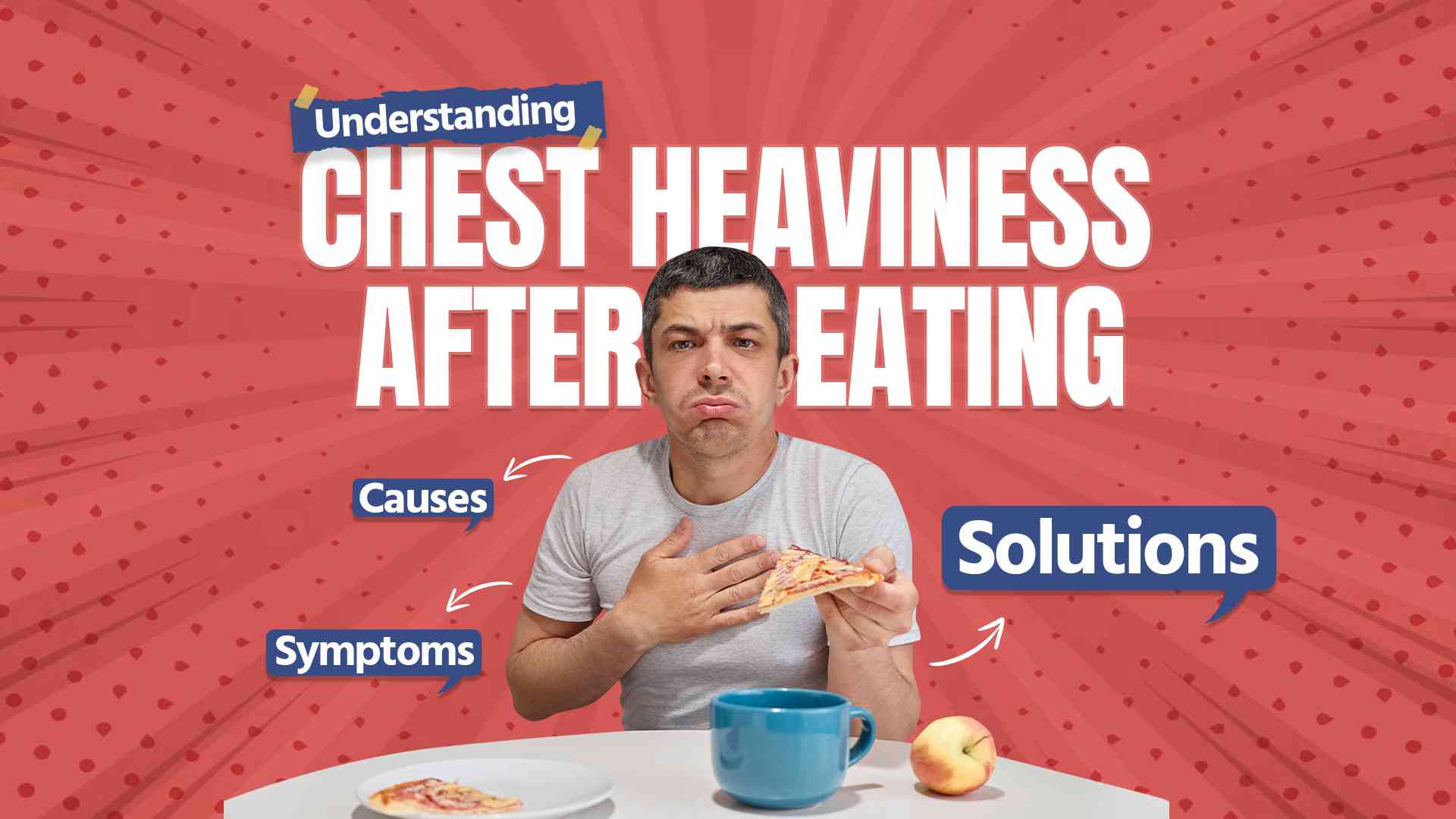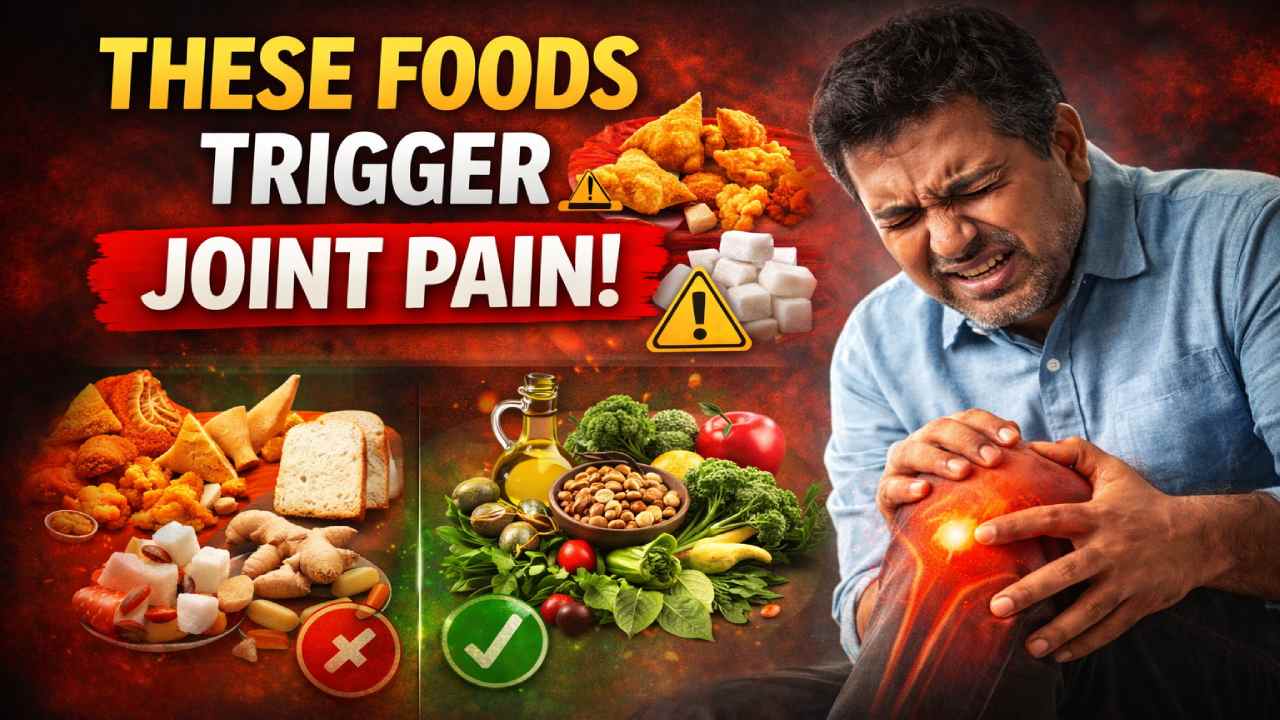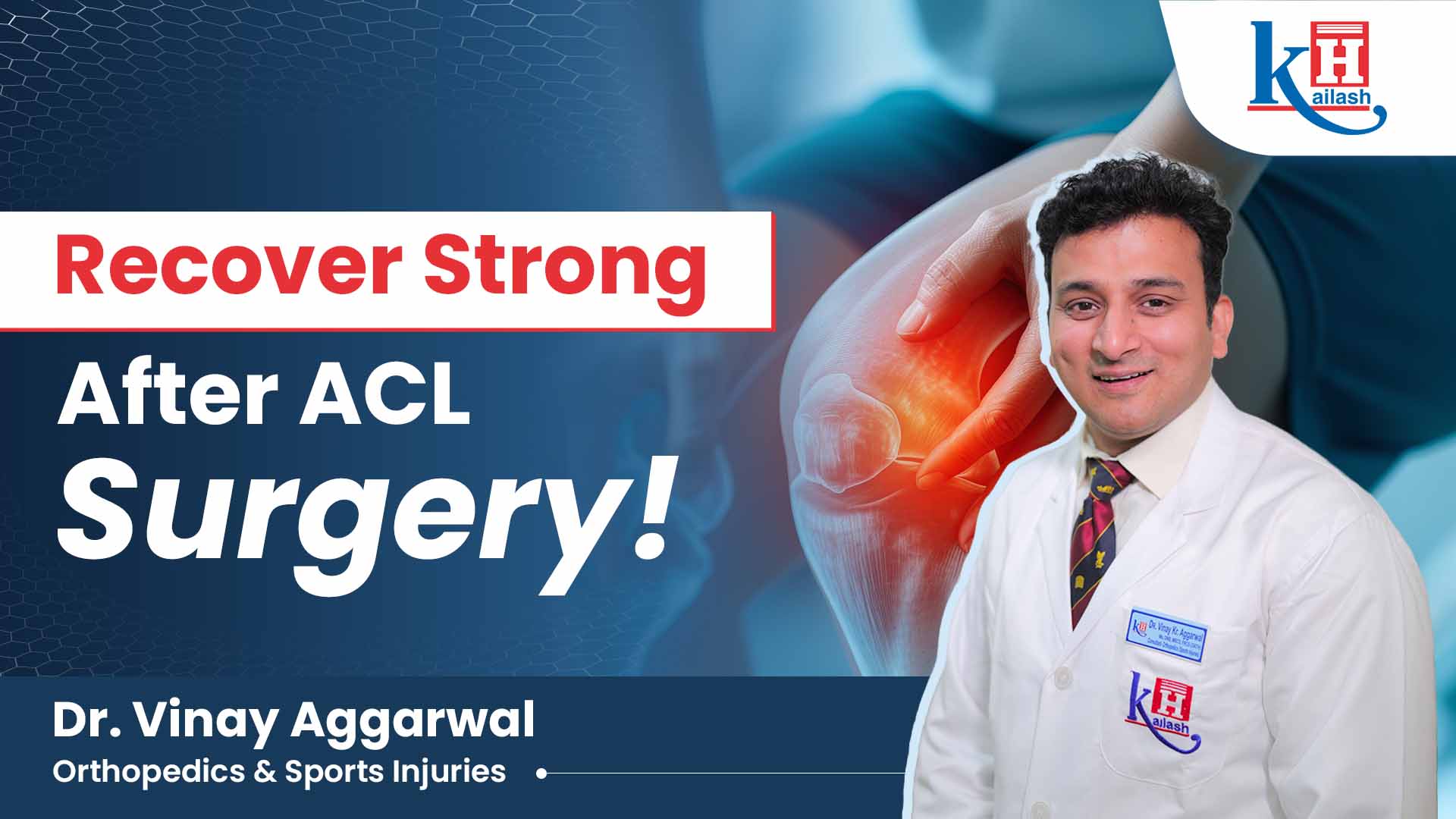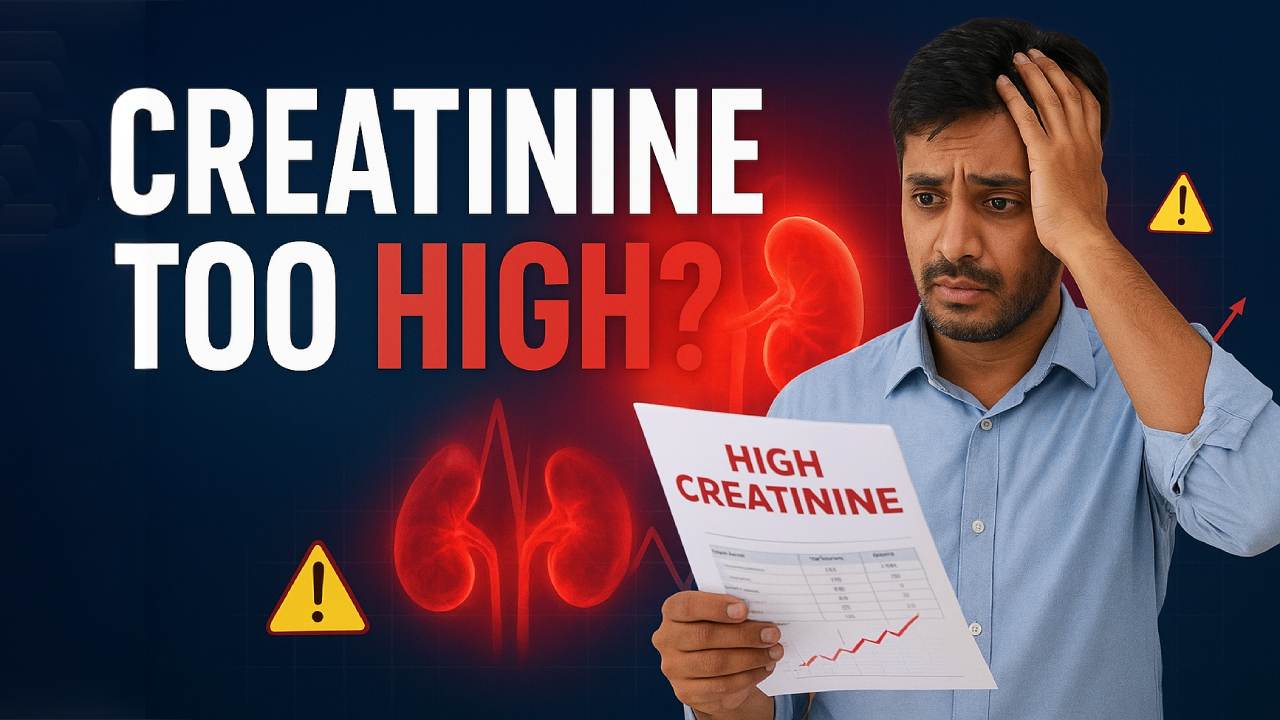Understanding Chest Heaviness after Eating: Causes, Symptoms, and Solutions
Verified By Dr. Sudhir Kr. Gupta | 06-Jul-2024
Feeling chest heaviness after eating can be disconcerting and often raises concerns about potential health problems. This sensation can range from mild discomfort to severe pain and is often linked to a variety of factors, including dietary habits, digestive problems, and more serious medical conditions. In this article, we will explore the common causes of chest heaviness after eating, associated symptoms, and potential remedies. Expert insights from Dr. Sudhir Kr. Gupta, Sr. Consultant Chest Physician & Dr. Saroj Dubey, Consultant Gastroenterologist at Kailash Hospital, Noida, will also be included to provide a comprehensive understanding of this issue.
Table of Content
While heartburn, a burning sensation in the chest caused by stomach acid rising into the esophagus, is a common culprit, it's not the only explanation for chest heaviness after eating. "Many factors can contribute to this discomfort," explains Dr. Sudhir Kr. Gupta, Sr. Consultant Chest Physician at Kailash Hospital, Noida. "Understanding the characteristics of your chest tightness can help narrow down the cause."
- Gastroesophageal Reflux Disease (GERD): GERD is a chronic digestive disorder where stomach acid or bile irritates the food pipe lining, leading to chest discomfort after meals. "GERD is a prevalent cause of chest heaviness after eating, characterized by acid reflux and heartburn," explains Dr. Dubey.
- Hiatus Hernia: This condition occurs when a part of the stomach pushes through the diaphragm into the chest cavity, causing chest pain or heaviness post-meal. Dr. Gupta notes, "Hiatus hernias can exacerbate symptoms of acid reflux, contributing to post-meal chest discomfort."
- Esophageal Spasm: Esophageal spasms are painful contractions within the muscular tube connecting your mouth and stomach (esophagus). "These spasms can imitate heart pain and frequently happen after meals, resulting in a feeling of chest heaviness," explains Dr. Dubey.
- Indigestion (Dyspepsia): Indigestion can cause a burning sensation and discomfort in the upper abdomen and chest. "Overeating, fatty foods, and stress are common triggers for indigestion, which can lead to chest heaviness," Dr. Dubey explains.
- Food Allergies and Intolerances: Certain foods can cause allergic reactions or intolerances, leading to symptoms such as chest tightness or heaviness. "It's important to identify and avoid foods that trigger these reactions," advises Dr. Dubey. One common reason for chest tightness is ingestion of “Supari”.
- Heart Conditions: While less common, chest heaviness after eating can sometimes indicate a heart problem such as angina. "If the chest discomfort is intense, long-lasting, or comes with other symptoms such as difficulty breathing, it's crucial to seek medical attention right away," Dr. Gupta warns.
- Anxiety: Anxiety can manifest as physical symptoms, including chest tightness, shortness of breath, and a racing heart.
- Panic Attacks: During a panic rattack, the body releases a surge of adrenaline, mimicking some of the symptoms of a heart attack, including chest tightness and difficulty breathing.
Also read this: Stomach Pain Due to Stress and Anxiety: Understanding and Managing the Impact
Identifying associated symptoms can help pinpoint the cause of chest heaviness after meals. Common symptoms include:
- Location: Is the tightness centered in your chest or upper abdomen? Heartburn pain is typically felt in the center of the chest, while indigestion or dyspepsia pain might be more widespread.
- Burning sensation: Does the tightness come with a burning feeling? If so, GERD is a likely culprit.
- Duration: Is the tightness short-lived or persistent? Short-lived tightness could be anxiety or esophageal spasm, while persistent tightness might indicate a digestive issue.
- Triggers: Does the tightness occur after specific foods or drinks, or during stressful situations? Identifying triggers can point towards the cause.
If you experience persistent or severe chest heaviness after eating, it's essential to consult a chest physician for a proper diagnosis. Dr. Sudhir Kr. Gupta outlines some common diagnostic methods:
- Medical History and Physical Examination: "A thorough medical history and physical exam are the first steps in diagnosing the cause of chest heaviness," says Dr. Gupta.
- Endoscopy: An endoscopy allows doctors to view the esophagus and stomach lining to check for inflammation, ulcers, or other abnormalities.
- Esophageal pH Monitoring: This test measures the acidity in your esophagus and can help diagnose GERD. "If you experience severe chest discomfort, prolonged pain, or symptoms like difficulty breathing, it is essential to seek medical attention immediately," advises Dr. Gupta explains.
- Manometry: Esophageal manometry measures the rhythmic muscle contractions in your esophagus when you swallow, which can help diagnose motility disorders like esophageal spasms.
- Imaging Tests: X-rays or CT scans can help identify structural abnormalities such as hiatal hernias or other conditions contributing to chest heaviness.
- ECG at the time of chest pain can help greatly in identifying any cardiac related problems.
Effective management of chest heaviness after eating involves addressing the underlying cause and making lifestyle changes. Dr. Gupta & Dr. Dubey provides the following recommendations:
- Dietary Modifications
- Avoid Trigger Foods: "Identify and avoid foods that trigger your symptoms, such as spicy, fatty, or acidic foods," advises Dr. Dubey.
- Eat Smaller, Frequent Meals: Instead of large meals, opt for smaller, more frequent meals to ease digestion.
- Stay Upright After Eating: Avoid lying down immediately after eating to prevent acid reflux.
- Lifestyle Changes
- Maintain a Healthy Weight: Excess weight can increase abdominal pressure and worsen symptoms of acid reflux.
- Avoid Smoking and Alcohol: Both can irritate the digestive tract and exacerbate symptoms.
- Stress Management: Techniques such as yoga, meditation, and deep breathing can help manage stress, which can trigger digestive issues.
- Surgical Options: In severe cases, surgical interventions such as fundoplication for GERD or repair of a hiatal hernia may be necessary. "Surgery is considered when lifestyle modifications and medications fail to provide relief," Dr. Gupta explains.
Also read this: How to Control Fasting Blood Sugar during Pregnancy?
While occasional chest heaviness after eating is often manageable with lifestyle changes, certain symptoms warrant immediate medical attention. Dr. Gupta advises seeking help if you experience:
- Severe or persistent
- Accompanied by difficulty breathing, nausea, or vomiting
- Worsened by exertion
- Radiates to your jaw, neck, or arm
- New or unexplained
These symptoms require immediate medical attention. Dr. Gupta emphasizes, "Consulting a chest specialist at Kailash Hospital, Noida, is crucial to rule out any serious underlying conditions, such as heart disease."
Chest tightness after eating can be a bothersome symptom, but by understanding the potential causes and seeking professional guidance when necessary, you can find relief and enjoy your meals without discomfort. Remember, prioritizing a healthy lifestyle, managing stress, and seeking medical advice for concerning symptoms are key to a lighter and healthier you.



 +91-9711918451
+91-9711918451
 international.marketing@kailashhealthcare.com
international.marketing@kailashhealthcare.com







